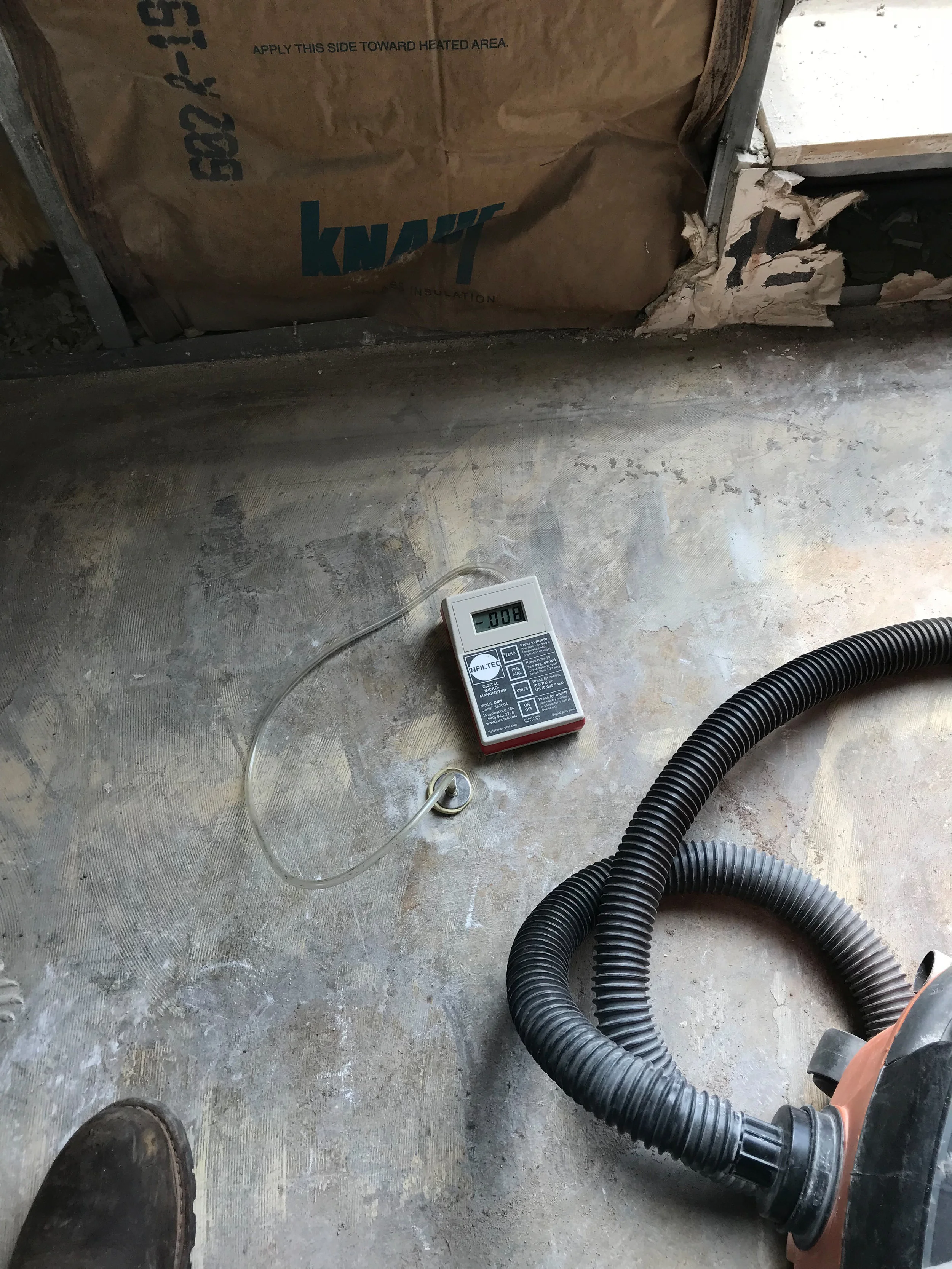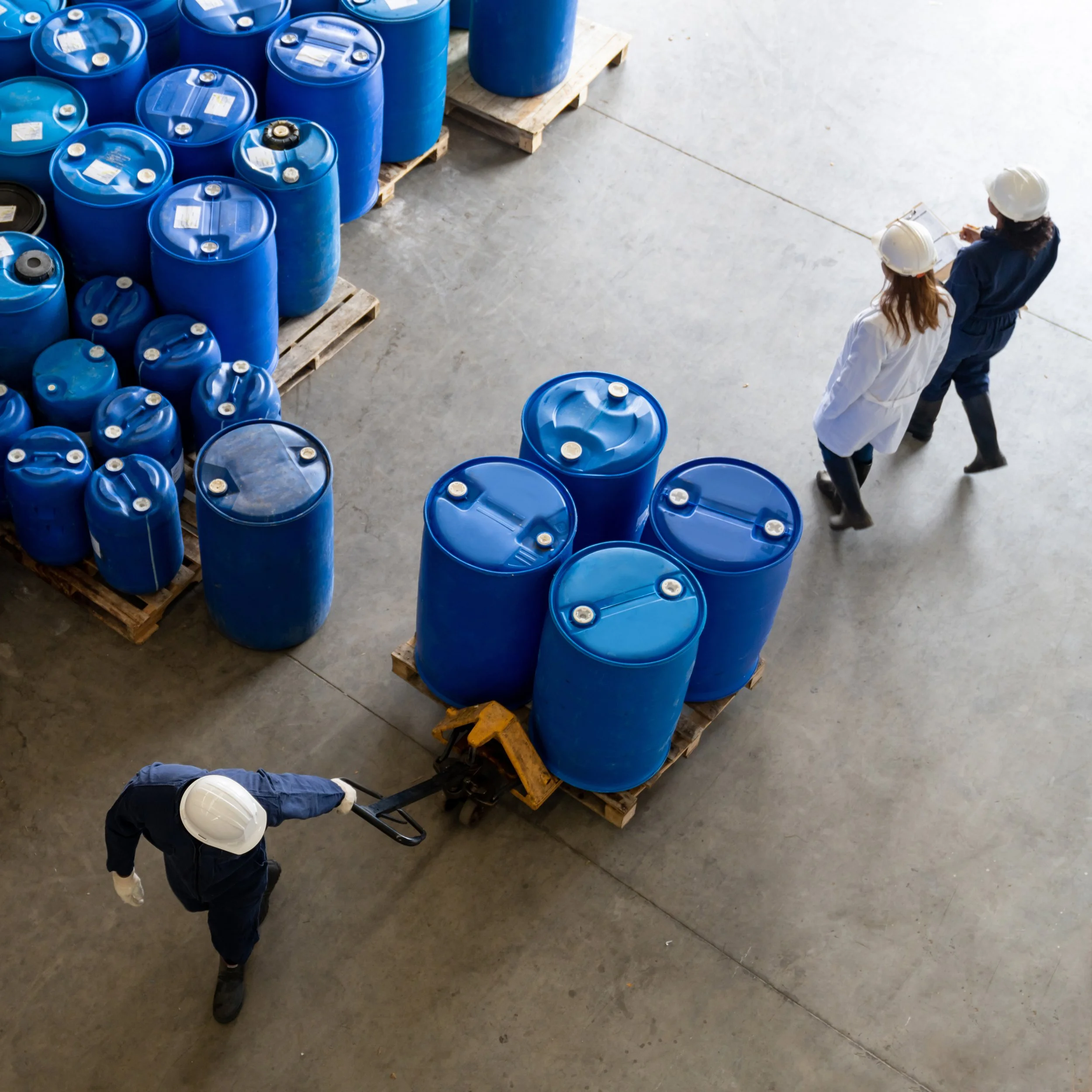We solve the most technically challenging environmental problems with groundwater and soil remediation solutions that are both creative and cost-effective.
Site Investigation and Environmental Remediation Services include:
Soil Investigation & Remediation
Groundwater Investigation & Remediation
Risk Assessment / Toxicology
Risk-Based Cleanups
PFAS
Strategy Development / Negotiations with Agencies
Superfund Sites
RCRA Sites
Petroleum Sites
Voluntary Cleanups
What our clients are saying…
“EXCELLENT work! This is outstanding!!!! And is exactly what I/we was/were expecting. I’m glad we hired you to help us clean up this mess. Thank you again!!!”
“I look forward to continuing to work with you. Your service, knowledge, and response have been extraordinary.”
“I have worked primarily with Sara Guss from KERAMIDA for the past 5 years on a very challenging remediation project. I could not be more pleased with the work that Sara and the whole KERAMIDA team has given us. As our 5 year project winds down, I can not find one negative thing to recall. I give my highest recommendation.”
“KERAMIDA has provided very efficient, professional and reasonably priced Phase I assessments for us at multiple sites.”
“Thank you for accelerating the analysis and your quick response and cooperation.”
“I found myself very comfortable in accepting your word and trusting what you had to say. In today’s business world that’s not easy.”
Environmental Investigation and Remediation Experts
groundwater sampling at a superfund site
KERAMIDA's team of investigation and environmental remediation professionals have a wide range of expertise from Superfund Site cleanup to ERD remediation for TCE & PCE impacted sites.
Our environmental engineering and remediation services are led by an experienced team of professionals known for developing innovative, sustainable solutions, using the most efficient and cost-effective remediation technology. We listen to our clients, and work closely with them to prioritize the goals of the project while balancing risk management and cost-control.
We understand the complexity of investigating and managing contaminated sites where there may be conflicting internal and external interests at play. We also know the importance of properly remediating the site conditions while taking potential future site use into account.
Leaders in Green and Sustainable Remediation
Green Assessment & Remediation Methods and Tracking
KERAMIDA is committed to the principles of implementing green remediation strategies and tracking methods. Green and Sustainable Remediation (GSR) is the site-specific employment of methods and technologies to reduce the environmental, social, and economic impacts of contaminant investigation and remedial tasks. We work with our Sustainability Division to implement these strategies for our remediation projects, especially for large projects that will have the most impact.
Environmental Site Assessments (ESAs)
KERAMIDA has completed site characterizations and developed innovative remedial solutions for numerous sites, including sites across the U.S. owned by Simon Property Group. KERAMIDA has worked successfully and extensively under various state regulatory cleanup programs. Our innovative approaches to Phase II ESAs, including up-front data collection to support closure strategy development and/or remedial efforts, as well as the use of cutting-edge technology has repeatedly saved our clients hundreds of thousands of dollars.
Prior to initiating work on Phase II ESAs, a site-specific Health and Safety Plan (HASP) and Sampling and Analysis Plan (SAP) are developed for each project site. KERAMIDA has worked closely with the U.S. EPA and state agencies in obtaining rapid approval of Quality Assurance Project Plans (QAPPs), SAPs and HASPs. During the Phase II ESA stage, KERAMIDA collects data, as appropriate, that will aid in identifying the most efficient, cost-effective remedial solution in the event that remediation is warranted.
Groundwater Remediation by Enhanced Reductive Dechlorination (ERD)
KERAMIDA DRILLER WITH INJECTION PERSONNEL CONDUCTING ENHANCED REDUCTIVE DECHLORINATION (ERD) INJECTION USING 3DME AND BDI-PLUS
Enhanced Reductive Dechlorination (ERD) is a groundwater remediation approach that is used at chlorinated volatile organic compound (cVOCs) impacted sites. These sites are usually former dry cleaning or manufacturing facilities which during the late 1960's to early 2000's used perchloroethylene (PCE), or perc, or trichloroethylene (TCE), a degreaser product.
KERAMIDA has completed multiple ERD injection projects and has several cVOC impacted sites undergoing active ERD groundwater remediation. We have obtained regulatory closure or achieved closure levels at multiple sites using ERD remediation. KERAMIDA provides turn-key services for cVOC impacted sites from investigation and delineation, remediation design and implementation, monitoring, and ultimately regulatory closure by our staff of expert professionals and in-house injection and drilling resources.
Learn more about ERD in the blog post below:
Groundwater Modeling Support
KERAMIDA provides specialized technical support and services in areas such as hydrology, groundwater modeling, risk assessment and karst services. KERAMIDA has performed groundwater modeling for impacts on adjacent surface waters and for pollutant fate and transport. Groundwater modeling methods have included various commercially available environmental science software and State agency mandated modeling programs.
Pollutants include:
pH
Metals
Anions
Petroleum related compounds
BTEX
MTBE
PAHs
Chlorinated VOCs
Hexane
Groundwater modeling has been used to determine:
contaminated plume transport and stability
contamination delineation
monitoring strategies
potential receptors
shallow and deep aquifer dynamics
pollutant fate and transport
pond recharge
impacts on adjacent surface waters
KERAMIDA's groundwater modeling expertise is used in conjunction with risk assessment methods to determine appropriate groundwater monitoring programs and closure strategies. Examples include demonstration of plume stability, pollutant attenuation, protection of human and ecological receptors, evaluation of non-cancer and cancer risks, exposure prevention remedies, and long-term monitoring. KERAMIDA has also performed modeling for vapor intrusion into buildings from soil and groundwater contamination.
Groundwater Site Assessments and Corrective Action Planning
KERAMIDA provides groundwater site assessments and corrective action planning as part of a strong history and wealth of experience in groundwater investigation and remediation. Our professionals have long worked with a diverse set of clients in delineating the nature and extent of groundwater plumes for various contaminants of concern. KERAMIDA demonstrates diligence in site assessment, remediation planning, sample collection, data validation, and ensuring groundwater contaminant levels meet regulatory cleanup levels.
Site assessment often occurs in a phased approach to carefully and accurately assess the extent of possible contamination. An initial assessment may be followed by supplemental delineation and possible completion of borings and monitoring well installation.
In developing corrective action plans, KERAMIDA has often worked to develop Construction, Erosion and Sediment Control Plans for the mitigation of contaminants that may leave impacted land. This can at times necessitate a 401/404 permit from IDEM/US Army Corp of Engineers required for work in or near wetlands. Our professionals are experienced in asserting which situations require excavation and disposal of contaminated overburden, or when soil can remain in place to be remediated, or if natural attenuation is sufficient. Our experienced staff can also determine the necessity for active remediation via chemical injection to treat any suite of chemicals by methods of oxidation or reductive dechlorination.
After remediation, we often provide our clients with remediation system operation, maintenance and groundwater monitoring and reporting. We ensure the continued functionality of remediation systems which may be installed. Site visits and extreme care are taken to monitor the remediation system, collect performance indicators, make operational adjustments, and maximize remediation efforts and efficiencies of the system. Continual groundwater monitoring of the site demonstrates the long-term care we take in environmental stewardship.
Remediation Planning and Design
We have built our reputation on achieving timely and cost-effective closure of remediation projects.
KERAMIDA has extensive experience completing projects for a wide array of private and governmental clients within State and Federal regulatory programs. Experience includes State Cleanup, Superfund, Defense Environmental Restoration, Voluntary Remediation, Leaking Underground Storage Tanks, and Brownfields, as well as a number of other programs. The remediation design often includes a component of risk assessment and modeling to determine the best remedial approach. The types of contaminants include petroleum products, RCRA regulated materials, hazardous wastes, chlorinated solvents, coal tars, and metals. KERAMIDA is also an IDEM contractor and has completed numerous projects in that capacity.
Our approach to all environmental assessment and remediation projects is proactive and strategically thought out such that we do not simply mobilize to the field, collect data, and then develop a plan to address the concerns. We consider the likely remedial/closure scenarios from the onset, including potential end users/development plans, technically feasible closure strategies (given the site geology/hydrogeology, site location, chemicals of concern (COCs), etc.), and other factors and collect data during the investigation to support likely closure strategies. This ability to “think backwards” from the end goal of a project provides great value, not only from a cost-savings standpoint but also from a time-saving and optimization standpoint.
Prior to the implementation of remediation work, KERAMIDA will develop a remediation work plan (RWP) in accordance with State and U.S. EPA guidance. The goal of all remedial activities is to prevent exposure to hazardous materials in the most cost-effective way possible, through focused remedial efforts and/or use of engineering and/or institutional controls where appropriate. The RWP will summarize the site conditions, evaluate potential remedial options, identify and provide the rationale for the chosen remedial strategy, and provide details for any post-remediation monitoring, as necessary.
Remedial Action Implementation
We are highly experienced in implementing innovative, cost-effective remedial strategies, including enhanced reductive dechlorination (ERD), enhanced aerobic bioremediation, and plume stability monitoring. These strategies have saved our clients hundreds of thousands of dollars compared to more conventional physical contaminant removal systems.
Other remedial technologies implemented include:
monitored natural attenuation
soil vapor extraction
methane extraction
dual-phase extraction
groundwater extraction
vacuum-enhanced groundwater extraction
non-aqueous phase liquid removal
bioremediation and bioventing
air sparging
high-vacuum extraction
In-Situ Chemical Oxidation (permanganate and peroxide)
enhanced bioremediation injections
reductive dechlorination
soil stabilization
capping
Our professionals have designed and implemented numerous remedies for hazardous waste and petroleum impacted sites. Remedies have ranged from soil excavation and disposal to in-situ biological and chemical treatment to engineered in-situ remediation systems (such as soil vapor extraction and air sparging). Risk assessment has played a key role in most remedial designs balancing cost-effectiveness with human-health and environmental protection.
We have completed large scale soil and groundwater remediation projects at active/inactive auto service stations, gasoline stations, and dry cleaners located throughout the U.S. for Simon Property Group. The type of remedial projects completed include soil excavation, soil vapor and groundwater extraction, vapor mitigation, chemical injection, plume stability monitoring, underground storage tank and aboveground storage tank (UST/AST) closure, hydraulic and elevator lift removal and closure, and hazardous waste profile and disposal.
Post-Remediation Operations and Maintenance (O&M)
KERAMIDA has the expertise to perform any required operation and maintenance (O&M) of systems. We have provided remediation operation and maintenance services for numerous clients including municipalities, community development corporations, private developers, state government, and industry, and many confidential clients. The scope of these projects has ranged from small site to large multi-building shopping malls and manufacturing facilities.
What clients are saying about our Investigation & Remediation Services:
“We appreciate the time and effort that you put into developing this excellent draft work plan. We know there was much hand wringing by you in trying to address concerns and at the same time complying with the Agreed Order and addressing IDEM’s concerns. No one could have walked that tightrope better than you. Please be assured that we know and appreciate the value you bring to this difficult exercise.”
“On a personal note, I appreciate all your help and the help of the rest of the KERAMIDA folks in getting this remediation completed and accepted by IDEM. We had a lot of personalities and issues to deal with, which you handled with great aplomb. ”
“I received a letter this morning stating BUSTR requires no further corrective action... I was beginning to believe this day would never come. Thank you so much for all your help. Between you and your subcontractor, my faith in others has been restored.”
Related Projects:
Related Services:
KERAMIDA offers innovative, comprehensive, and cost-effective solutions for the cleanup and redevelopment of EPA Brownfield sites. Our team of environmental experts have extensive due diligence and remediation experience working with large manufacturing facilities, Superfund sites, gas stations, dry cleaners, and more.
KERAMIDA is full-service environmental consulting firm with decades of Due Diligence experience performing Phase I & Phase II environmental site assessments and remediation services. Minimize risk and protect yourself from liability in any commercial real estate transaction where potential environmental risks are a concern.
KERAMIDA offers comprehensive vapor intrusion services from initial assessment through mitigation design and installation for both commercial and residential buildings. Our vapor intrusion professionals are experts in VI testing, mitigation, and sub-slab vapor remediation in all types of buildings and foundations.

























